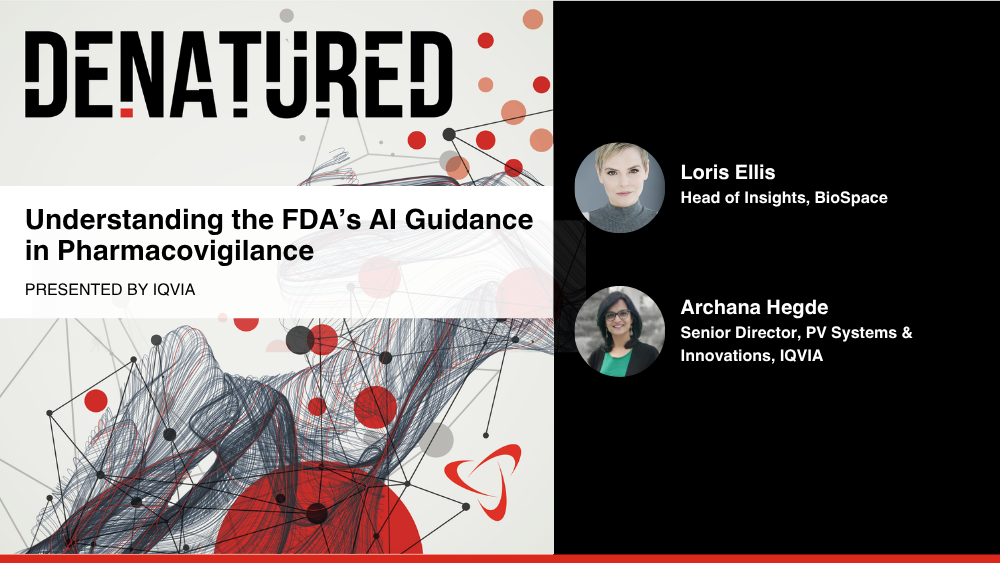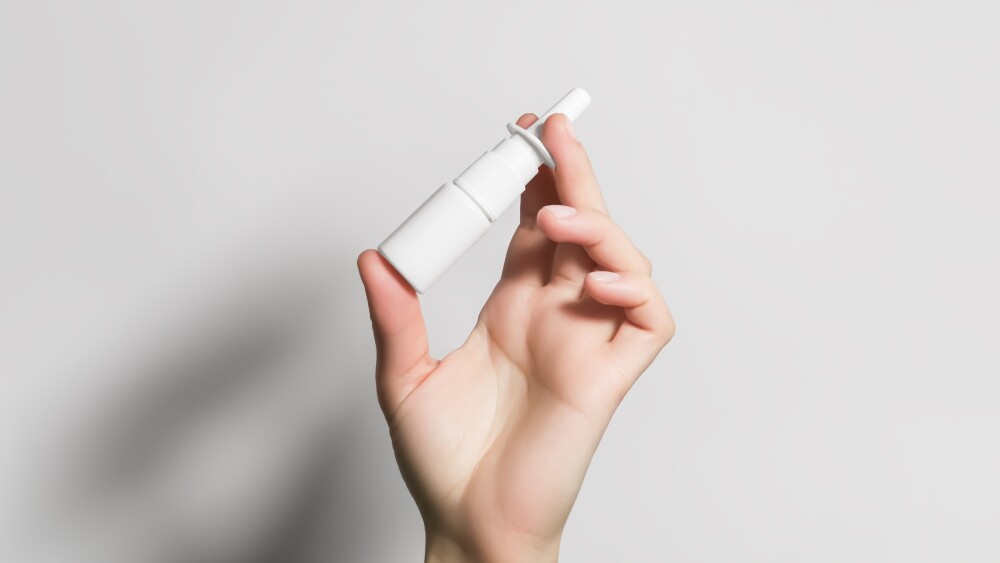COVID-19 ARDS patients treated with a single dose of the anti-LIGHT monoclonal antibody CERC-002 demonstrated robust improvement in the primary endpoint (proportion of patients alive and free of respiratory failure over the 28-day study period) compared to placebo (n=62, odds ratio [OR] = 2.62, p=0.059) A prespecified subgroup analysis of patients 60 years of age showed that CERC-002 treatment led to a greater than 3-fold increase in likelihood of avoiding respiratory failure
- COVID-19 ARDS patients treated with a single dose of the anti-LIGHT monoclonal antibody CERC-002 demonstrated robust improvement in the primary endpoint (proportion of patients alive and free of respiratory failure over the 28-day study period) compared to placebo (n=62, odds ratio [OR] = 2.62, p=0.059)
- A prespecified subgroup analysis of patients 60 years of age showed that CERC-002 treatment led to a greater than 3-fold increase in likelihood of avoiding respiratory failure and death compared to placebo (n=33, OR = 3.38, p=0.054)
- 28-day mortality was reduced by approximately 50% in patients treated with CERC-002 (3 patients) vs. placebo (6 patients). There were a total of 4 COVID-19 related deaths in patients on CERC-002 vs. 9 on placebo as of December 2020. These data will be updated and analyzed at the 60-day timepoint
- Importantly, CERC-002 showed activity on top of corticosteroids in COVID-19 ARDS (>90% of patients in the trial received corticosteroids and >60% received remdesivir)
- CERC-002 dramatically and rapidly reduced serum free-LIGHT levels
- CERC-002 was well tolerated with no drug related SAEs and no clinically meaningful differences in immunosuppression or other SAEs between CERC-002 and placebo
- The company intends to meet with the FDA and believes that these data support the initiation of a registration trial and filing for Breakthrough Therapy Designation. Additionally, the company is continuing its program in severe pediatric-onset Crohn’s disease and is exploring the applicability of CERC-002 in non-COVID-19 ARDS
ROCKVILLE, Md. and CHESTERBROOK, Pa., Jan. 05, 2021 (GLOBE NEWSWIRE) -- Cerecor Inc (NASDAQ: CERC), a biopharmaceutical company focused on becoming a leader in the development and commercialization of treatments for rare and orphan diseases, today announced results from its exploratory Phase 2 US-based randomized, double-blind, placebo-controlled proof of concept trial (NCT04412057) of the human anti-LIGHT (TNFSF14) monoclonal antibody CERC-002. All patients in this trial were hospitalized with COVID-19 associated pneumonia and mild-to-moderate acute respiratory distress syndrome (“ARDS”). A total of 83 patients (82 treated) were randomized 1:1 to receive standard of care at the sites plus either a single dose of 1,200 mg of CERC-002 or placebo subcutaneously. Due to the protocol allowing patients to receive high flow oxygen prior to randomization, 62 patients were included in the intention-to-treat (ITT) analysis of the primary endpoint.
The trial demonstrated robust improvement in the primary endpoint (proportion of patients alive and free of respiratory failure over the 28-day study period) compared to placebo in COVID-19 patients with ARDS treated with a single dose of the anti-LIGHT monoclonal antibody CERC-002 (n=62, OR = 2.62, p=0.059; these data trended towards statistical significance, p≤0.05). A prespecified subpopulation of patients 60 years of age showed similar improvement in the primary endpoint (n=33, OR = 3.38, p=0.054). CERC-002-treated patients in the subpopulation of patients 60 years of age also had a shorter average hospital stay compared with placebo-treated patients.
These data further showed a numerical mortality benefit favoring CERC-002 with 4 patients dying on active drug and 9 on placebo as of December 31, 2020. These data will be updated and analyzed at the 60-day timepoint.
Importantly, >90% of patients received concomitant systemic corticosteroids and >60% received remdesivir. Thus CERC-002 showed activity on top of corticosteroids in COVID-19 ARDS.
No drug-related serious adverse effects (SAEs) were reported in the trial, and there was no increase in infections in CERC-002 treated patients. The large majority of hospitalized COVID-19 patients had elevated LIGHT (TNFSF14) levels in their serum upon admission. Consistent with its targeted mechanism of action, CERC-002 dramatically and rapidly reduced LIGHT levels in nearly all treated patients, while patients on placebo saw a rise in LIGHT levels through Day 5. LIGHT levels were higher in the older patients who have a higher risk of death and respiratory failure. Moreover, these data demonstrate that corticosteroid therapy does not seem to affect serum LIGHT levels and that CERC-002 provides additional benefit on top of corticosteroid therapy.
“I would first like to thank the patients, their families, and the investigators for their participation in this important study,” said Jeff Wilkins, Chief Medical Officer of Cerecor. “We are very excited about these results as they demonstrate the therapeutic potential of CERC-002. In spite of recent advances in the treatment of COVID-19 ARDS patients, COVID-19 remains a global health threat, and this study demonstrates the potential for significant improvement for patients most at risk.”
Garry Neil, Chief Scientific Officer added, “Cytokine release syndrome remains a major cause of death and morbidity in COVID-19 ARDS. We and others have shown that the important immunoregulatory cytokine, LIGHT, plays a critical role in this syndrome – and that such patients have elevated LIGHT levels in their serum, roughly correlating with disease activity.1 The data from this proof-of-concept study clearly demonstrate that neutralizing LIGHT with CERC-002 can improve clinical outcomes for COVID-19 ARDS patients, even when given to patients on concomitant steroids and remdesivir. In this study, CERC-002 was safe and well tolerated in sick, older, steroid-treated patients in the ICU. These data greatly increase our confidence in the mechanism of action and clinical utility of CERC-002, in COVID-19 ARDS and in other immune diseases. We believe we now have sufficient information to work with the FDA to design a registration trial for COVID-19 ARDS patients. We believe that these data also provide valuable insights that we can apply to other programs including our Crohn’s disease program.”
A presentation of these data updates can be found on the “Company Information” page of the “Investors” section on the Cerecor website linked here.
CERC-002 (anti-LIGHT monoclonal antibody)
CERC-002 is a fully human anti-LIGHT or tumor necrosis factor superfamily member 14 (TNFSF14) monoclonal antibody licensed from Kyowa Kirin Co., Ltd. It is the only clinical stage anti-LIGHT therapy and has the potential to treat a number of LIGHT-associated immune diseases including cytokine storm-induced COVID-19 ARDS. It is currently in development for pediatric onset Crohn’s disease and cytokine storm induced COVID-19 ARDS. Cerecor has also developed a validated, high sensitivity serum/plasma free LIGHT assay in collaboration with Myriad RBM.
Role of LIGHT in Acute Inflammatory Response
LIGHT (homologous to Lymphotoxin, exhibits inducible expression and competes with HSV glycoprotein D for binding to herpesvirus entry mediator, a receptor expressed on T lymphocytes) is a cytokine with inflammatory actions encoded by the TNFSF14 gene. LIGHT plays an important role in regulating immune responses in the lung, gut and skin. It stimulates T Cell and B Cell response as well as induces the release of other cytokines such as IL1, IL6, IL-8, IL-10, TNF and GM-CSF. It thus plays a key role in immune responses to viral pneumonia and other diseases.
About Cerecor
Cerecor is a biopharmaceutical company focused on becoming a leader in the development and commercialization of treatments for rare and orphan diseases. The company is advancing its clinical-stage pipeline of innovative therapies that address unmet patient needs within rare and orphan diseases. The company's rare disease pipeline includes CERC-801, CERC-802 and CERC-803, which are in development for congenital disorders of glycosylation and CERC-006, an oral mTORc1/c2 inhibitor in development for the treatment of complex lymphatic malformations. The company is also developing two monoclonal antibodies, CERC-002, and CERC-007. CERC-002 targets the cytokine LIGHT (TNFSF14) and is in clinical development for treatment of severe pediatric-onset Crohn's disease, and COVID-19 acute respiratory distress syndrome. CERC-007 targets the cytokine IL-18 and is in clinical development for the treatment of Still’s disease (adult onset Still’s disease (AOSD) and systemic juvenile idiopathic arthritis (sJIA)), and multiple myeloma (MM). CERC-006, 801, 802 and 803 have all received Orphan Drug Designation and Rare Pediatric Disease Designation, which makes all four eligible for a priority review voucher upon FDA approval.
For more information about Cerecor, please visit www.cerecor.com.
Forward-Looking Statements
This press release may include forward-looking statements made pursuant to the Private Securities Litigation Reform Act of 1995. Forward-looking statements are statements that are not historical facts. Such forward-looking statements are subject to significant risks and uncertainties that are subject to change based on various factors (many of which are beyond Cerecor’s control), which could cause actual results to differ from the forward-looking statements. Such statements may include, without limitation, statements with respect to Cerecor’s plans, objectives, projections, expectations and intentions and other statements identified by words such as “projects,” “may,” “might,” “will,” “could,” “would,” “should,” “continue,” “seeks,” “aims,” “predicts,” “believes,” “expects,” “anticipates,” “estimates,” “intends,” “plans,” “potential,” or similar expressions (including their use in the negative), or by discussions of future matters such as: the development of product candidates or products; timing and success of trial results and regulatory review; potential attributes and benefits of product candidates; and other statements that are not historical. These statements are based upon the current beliefs and expectations of Cerecor’s management but are subject to significant risks and uncertainties, including: drug development costs, timing and other risks, including reliance on investigators and enrollment of patients in clinical trials, which might be slowed by the COVID-19 pandemic; regulatory risks; Cerecor's cash position and the need for it to raise additional capital; general economic and market risks and uncertainties, including those caused by the COVID-19 pandemic; and those other risks detailed in Cerecor’s filings with the Securities and Exchange Commission. Actual results may differ from those set forth in the forward-looking statements. Except as required by applicable law, Cerecor expressly disclaims any obligations or undertaking to release publicly any updates or revisions to any forward-looking statements contained herein to reflect any change in Cerecor’s expectations with respect thereto or any change in events, conditions or circumstances on which any statement is based.
For media and investor inquiries
James Harrell
Investor Relations
Chief Commercial Officer
Cerecor Inc.
jharrell@cerecor.com
623.439.2220 office
1 Perlin DS, Zafir-Lavie I, Roadcap L, et al Levels of the TNF-Related Cytokine LIGHT Increase in Hospitalized COVID-19 Patients with Cytokine Release Syndrome and ARDS. mSphere. 2020 Aug 12;5(4):e00699-20.





